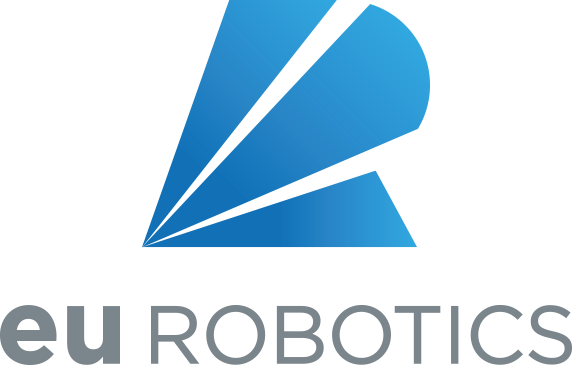Over several months, the newsletter has given members of the Board of Directors a brief platform to introduce themselves and to set out their priorities and focus of interest as Directors of euRobotics.
In this edition we hear from newly-elected (or in one case, re-elected) Directors Mare Mechelinck, Nicola Tomatis and Christian Schlette.

Dr. Mare Mechelinck, Universitätsklinikum Aachen, Germany
Coming from the healthcare sector, I have personally experienced the increasing shortage of skilled workers and the dramatic consequences that come with it. With an ageing society, the need to fulfil physical tasks is huge and this need will continue to grow in many sectors. Accordingly, I see enormous market potential for robotics in the coming years. Digitalisation and AI alone cannot fulfil these physical tasks. I have great confidence in the European solutions because of the know-how, but also because of the values and regulations that guarantee a safe use. However, in order for European robotics technology to remain successful on the global market, we should make the best use of our opportunities. This includes a mutual exchange with end-users, which can provide insights into potential new market areas. Moreover, it requires the active participation of end-users, which is essential for any market launch. euRobotics can assist its members in facilitating exchange, cooperation and end-user involvement, which is important for all application areas. I would therefore like to help increase end-user activities within euRobotics. Overall, I am looking forward to actively shaping the association’s path and promoting the deployment of robotics in Europe.

Dr. Nicola Tomatis, CEO, BlueBotics SA, Switzerland
Europe is one of the most successful regions in terms of value creation with robotics. Companies like ABB, Comau, Kuka, etc. have since a long time successfully delivered robotic solutions worldwide. More recently, successes like Universal Robot and MiR, but also many other companies, for example in the AGV/AMR field like ASTI, Elettric 80, Kivnon, Oppent, Oceaneering, etc., have shown that Europe is extremely strong in creating value for the end customer. In my opinion, euRobotics has to structure itself as a self-sustained association fostering the success of Europe in the robotic field. This can be achieved by positioning the association as a key enabler of collaboration between the different stakeholders like industry, research, but also end users. I think the networking activities of the association are extremely important, and should even be strengthened. In order to be more market-driven, the spirit of entrepreneurship could be promoted even more vigorously to all the members. I would also like to see increased communication between the board, the members and the general public in order to raise awareness about what robotics can do in Europe both in terms of commercial and social impact. It goes without saying that I am very happy to be back ‘on board’ and I look forward to getting started.

Prof. Christian Schlette, SDU, Denmark, who is also organiser of ERF2023
Long-lasting relationships with partners, friends and mentors across the European robotics community are a cornerstone of my professional life. Nothing beats a direct and open collaboration based on trust, and networks of trust to explore new joint undertakings. Thus, I consider strengthening and communicating euRobotics as a functioning European network of trust across academia and industry as my most important task. Even in times when the European idea is challenged, our community demonstrates a unique cohesion and solidarity that could be improved even further.
Urgent challenges for our society arise around the topics of climate, energy and sustainability, and today, it is particularly the construction, energy and maritime sectors which are at the edge of struggling with addressing these topics. I consider it essential for our community to contribute to tackling these challenges with novel robotic systems and services. Thus, I want to promote euRobotics as a strategic partner for companies and organizations from these sectors, as well as making EU decision makers aware of the innovation potential of furthering the robotization of the construction, energy and maritime sectors in Europe.

